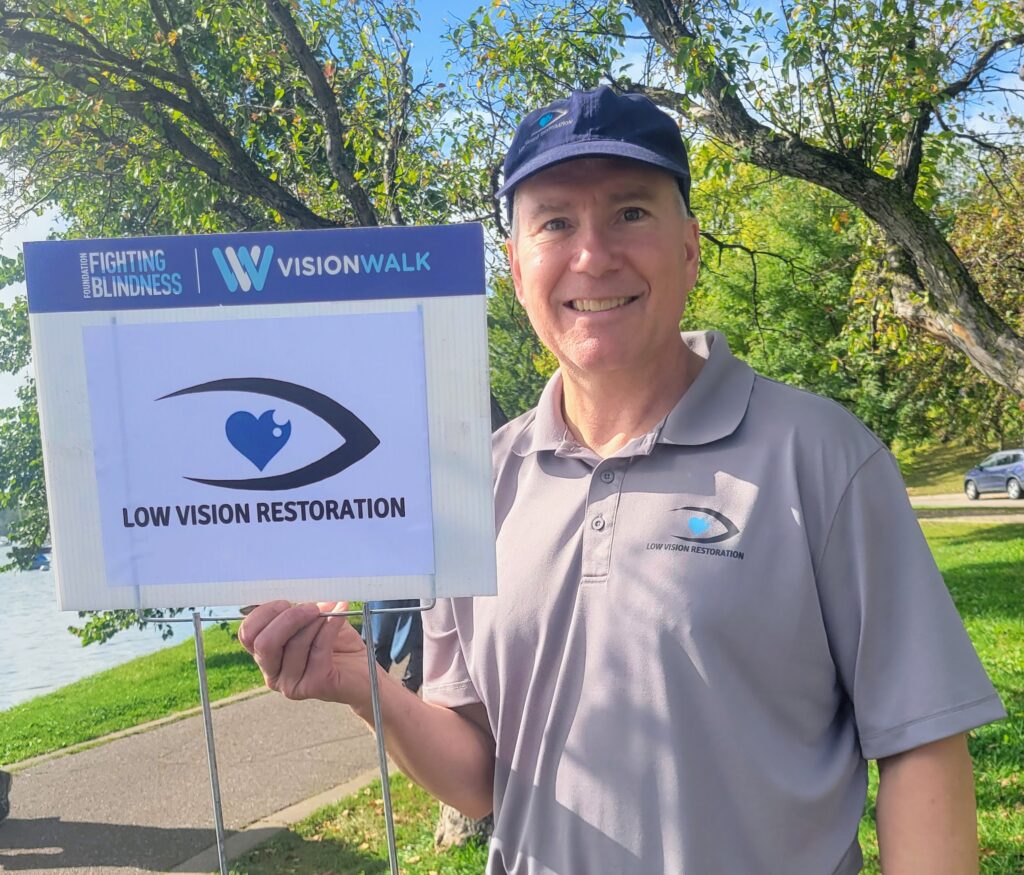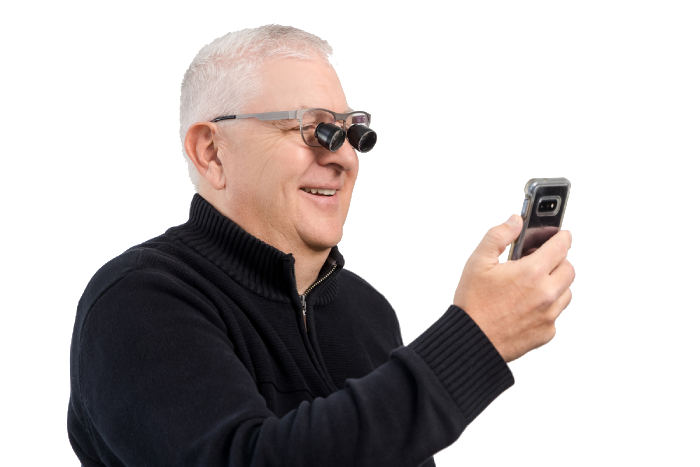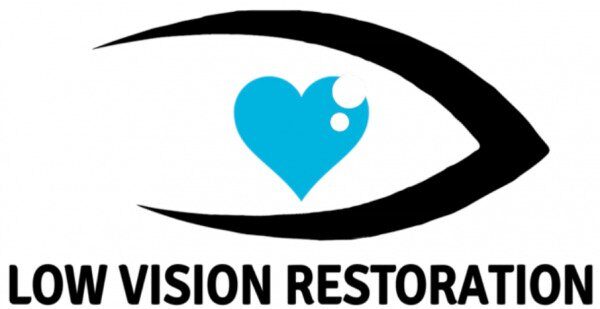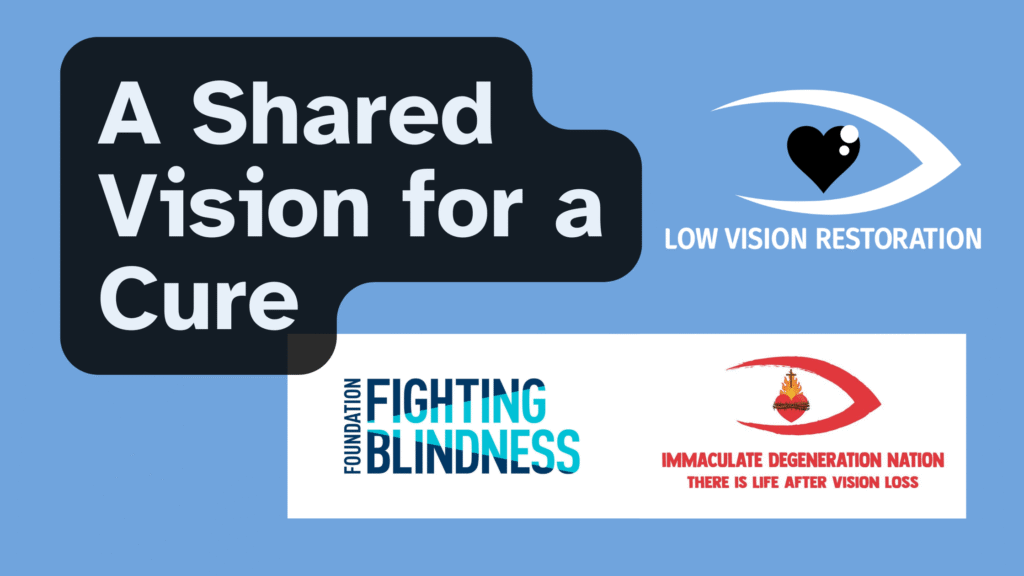
At Low Vision Restoration, our mission is clear: to provide hope, support, and new options for people facing challenges from low vision. Each day, we engage with people battling various visual impairments, including two of the most impactful genetic retinal diseases: Stargardt Disease (a juvenile form of Macular Degeneration) and Retinitis Pigmentosa (RP). These conditions pose significant challenges to people, profoundly impacting their daily lives, yet they also embody the very reason why our collaboration with organizations like the Foundation Fighting Blindness (FFB) matters so deeply.
Understanding Stargardt Disease and Retinitis Pigmentosa
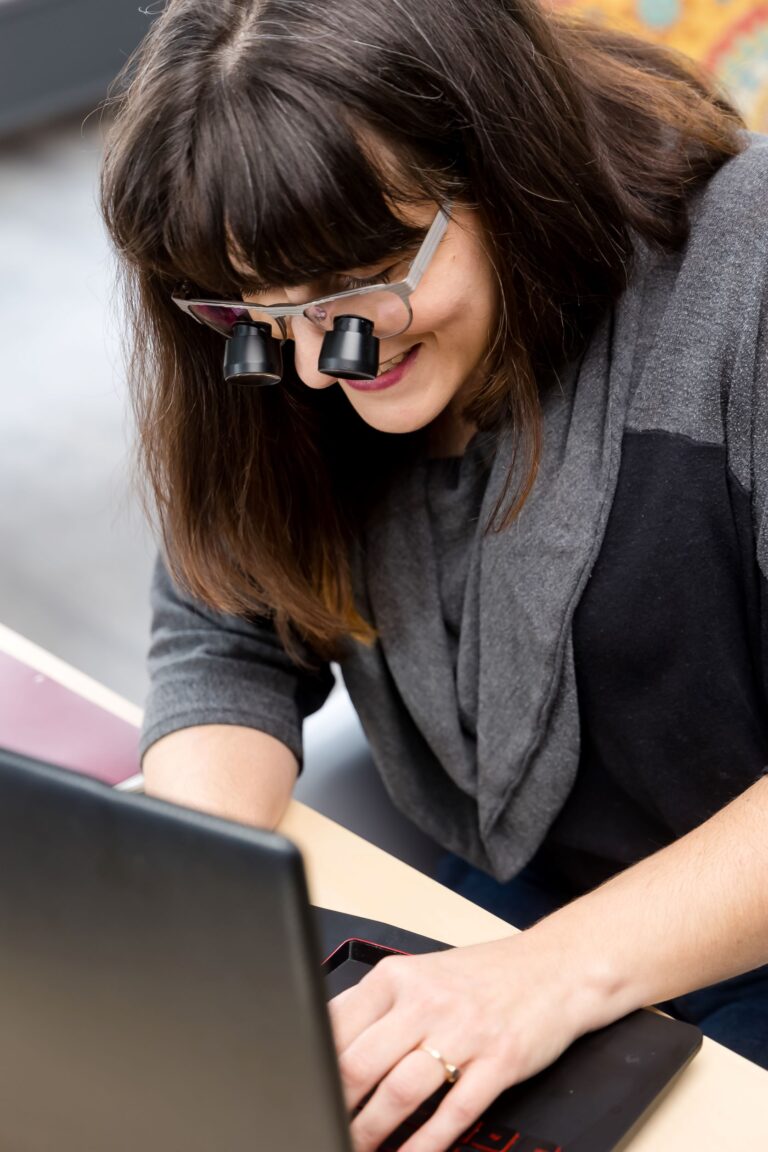
Understanding the conditions the people we serve face helps explain the urgency behind research.
Stargardt Disease is a hereditary condition that primarily affects the macula, the central part of the retina responsible for sharp, detailed vision. People often experience vision loss in childhood or young adulthood, making everyday activities challenging. Symptoms may include blurred vision, difficulty seeing in low light, and blind spots, all of which can lead to emotional distress and a sense of loss for those affected.
On the other hand, Retinitis Pigmentosa encompasses a group of genetic disorders that lead to the degeneration of the retina’s photoreceptor cells. Folks with this condition often face progressive loss of peripheral and night vision, eventually leading to tunnel vision or complete blindness. Dr. Palmer and our team witness the profound impacts of these diseases as we work to help people adapt and find ways to preserve their independence and do the things they love.
Collaboration with the Foundation Fighting Blindness
The Foundation Fighting Blindness is dedicated to funding research aimed at preventing, treating, and ultimately curing retinal diseases. Their funding and accelerated research span gene therapy, pharmacologic approaches, stem cell techniques, and technologies designed to preserve or restore retinal function. These investments have translated into clinical trials and, in some cases, therapies that are changing the trajectory of retinal disease. For the people we serve and clinicians alike, the work of FFB represents hope- the possibility that progressive, genetic vision loss will one day be preventable or reversible.
Their vision aligns with ours: to eradicate the devastating effects of conditions like Stargardt Disease and Retinitis Pigmentosa from the lives of Minnesotans and beyond. Their relentless pursuit of innovative treatments offers hope not only to those currently affected but also to future generations facing the threat of low vision as a result of genetic conditions.
Dr. Palmer often says, with a mixture of professional pride and humility, that he hopes FFB’s research “puts me out of business.” That sentiment reflects the ideal outcome for anyone who practices low vision rehabilitation: a future in which fewer folks need adaptive services because effective treatments have halted disease progression or restored vision.
Translating Research Into Real-World Impact
Research gives clinicians new tools to offer people- whether it’s referring eligible folks to a clinical trial, collaborating with specialists to sequence genes, or applying new evidence-based therapies as they become available. Until cures or durable treatments are universally accessible, our work at Low Vision Restoration remains critical: we maximize independence through the use of customized glasses that help people continue meaningful activities like reading, working, and engaging with family and community.
Joining the Fight Locally: Fundraising and the Twin Cities VisionWalk
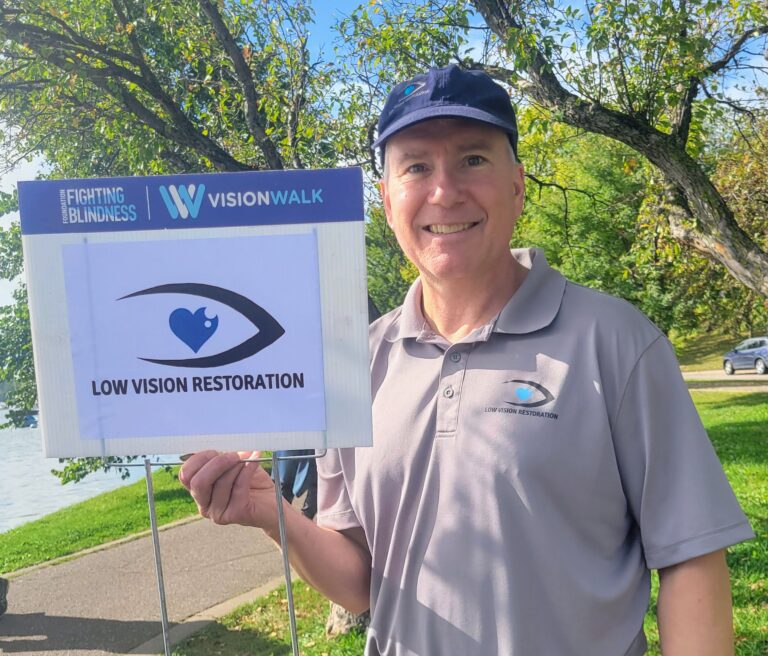
Research organizations cannot succeed without community support. That’s why Low Vision Restoration actively participates in fundraising and awareness events in partnership with FFB. Each year, we assemble a team- The Immaculate Degeneration Nation- for the Foundation Fighting Blindness Twin Cities VisionWalk. The walk is much more than a fundraising event; it’s an opportunity for folks, families, clinicians, and supporters to come together, share stories, and visibly demonstrate hope and solidarity.
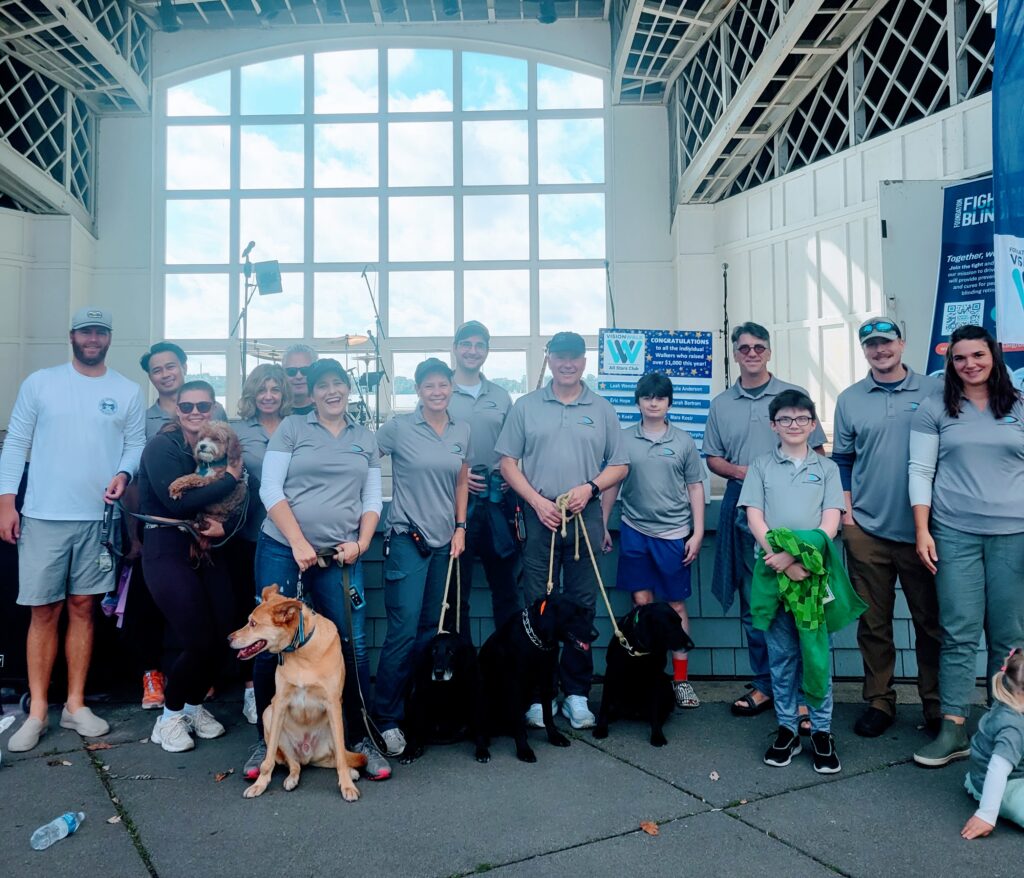
Fundraising through the VisionWalk helps sustain the research pipeline: it supports pilot studies, enables early-stage trials, and underwrites resources that connect people to research. For the folks we serve, participating can be empowering- a way to contribute to a future where inherited retinal diseases are effectively treated. For clinicians and staff, walking alongside those we help reinforces why we do this work and strengthens the bonds within our low vision community.
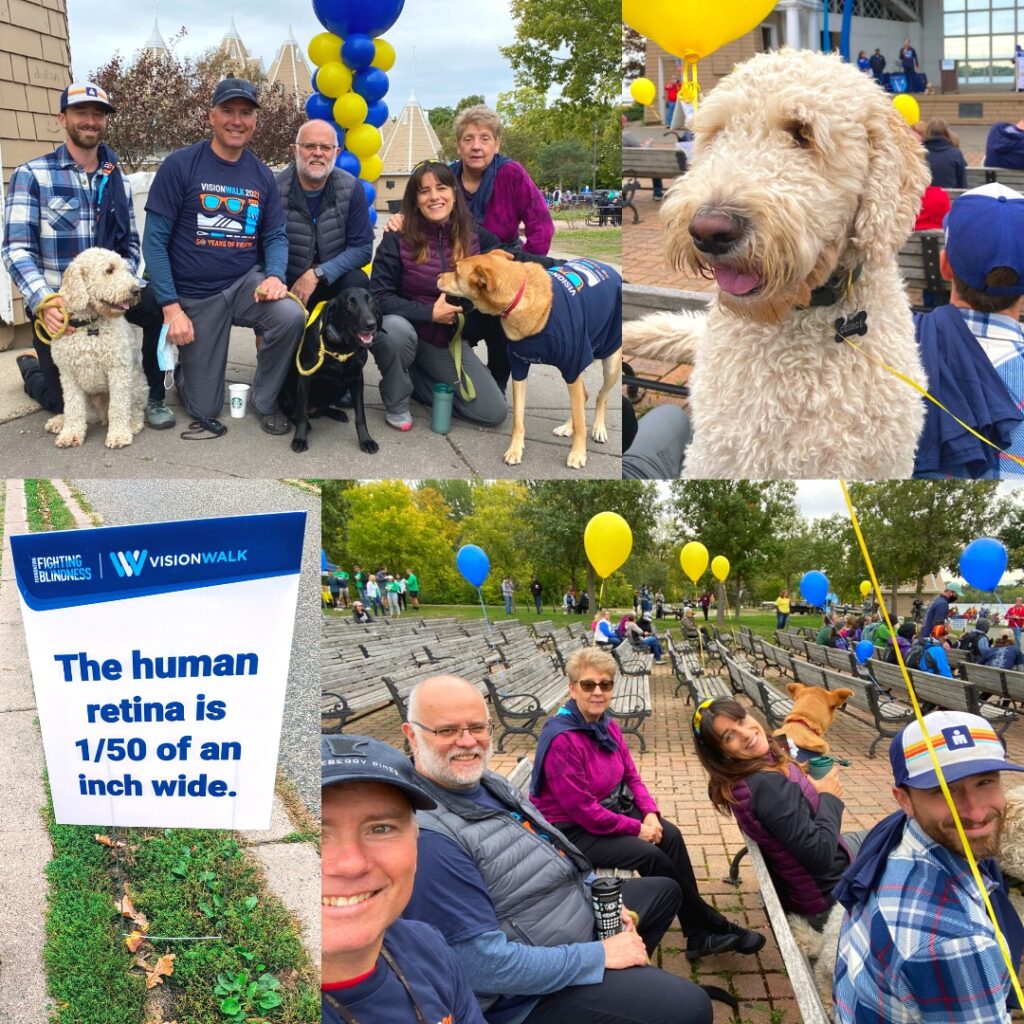
If you’ve benefited from our services or simply believe in the power of research, joining our team or contributing to VisionWalk is a practical way to make an impact. Every donation helps move science forward, and every walker amplifies awareness.
Looking Toward a Brighter Future
At Low Vision Restoration, we balance two commitments: providing immediate, practical solutions that improve daily life for people with low vision, and advocating for, and participating in, efforts that aim to eliminate the need for our services in the future. Supporting the Foundation Fighting Blindness is one concrete way we translate that dual commitment into action.
As we continue to work towards our mission, collaborating with the Foundation Fighting Blindness reinforces our commitment to creating a future free from the challenges of Stargardt Disease, Retinitis Pigmentosa, and other genetic retinal diseases. By supporting research initiatives, raising awareness, and empowering people with new tools like bioptic telescope glasses, we pave the way for hope, resilience, and ultimately, transformation for those grappling with low vision.
We invite you to join us in this mission. Together, we can support research efforts, promote awareness, and advocate for the rights and well-being of those affected by low vision. With every step, we move closer to a world where effective treatments and cures are a reality, alleviating the burdens of those living with genetic retinal diseases and helping them to reclaim their vision, mental health, and their favorite pastimes.
Take Action
If you’re interested in learning more about how you can support the mission of the Foundation Fighting Blindness, please don’t hesitate to reach out. Together, we can make strides toward a future where life after vision loss is within reach for all.

